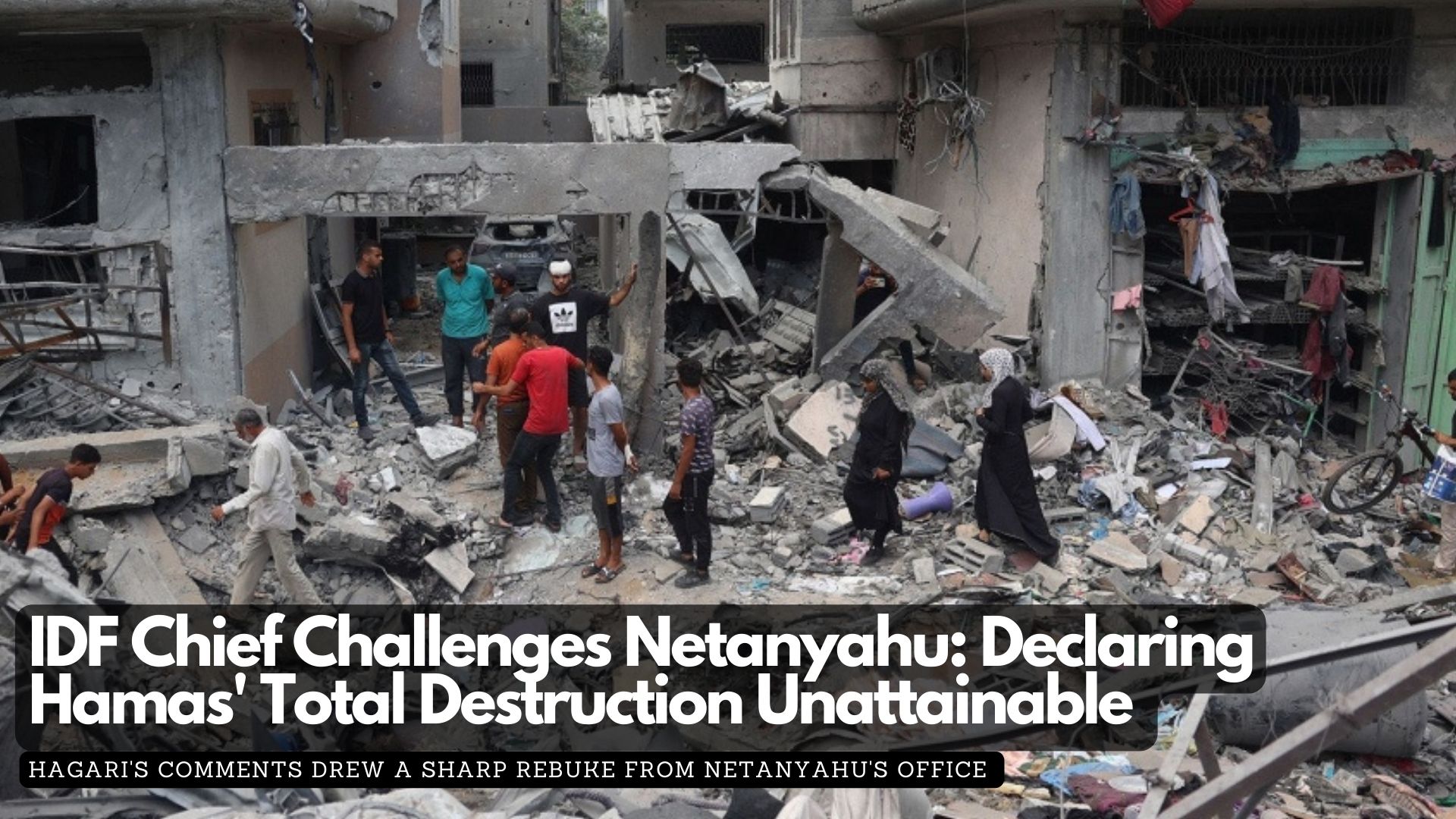The divide between Israel’s top military leaders and Prime Minister Benjamin Netanyahu is growing. In a rare public challenge, Israel Defense Forces (IDF) spokesman Rear Adm. Daniel Hagari said that completely destroying Hamas is unattainable. Netanyahu insists the war will continue until Hamas is eliminated.
Hagari’s comments drew a sharp rebuke from Netanyahu’s office, which reiterated that the IDF is committed to destroying Hamas’ military and governing capabilities. The IDF later clarified that Hagari was referring to Hamas as an enduring ideology.
Despite attempts to smooth over the comments, tensions between the government and the military are evident. Netanyahu faces pressure from his government and allies, including the US, to plan for Gaza’s governance post-war. The conflict began in response to Hamas’ October 7 attacks on Israel, with the aims of recovering hostages, crippling Hamas’ governance, and preventing future attacks.
Hagari’s remarks reflect fears that the military campaign might not fully achieve these goals, as Hamas remains a strong ideological force. The government now seems to temper its initial war aims, focusing on eliminating Hamas’ military and governing capabilities rather than total annihilation.
Public disagreements between the government and military are becoming more frequent, highlighted by the IDF’s announcement of a daily “tactical pause” in southern Gaza to allow aid distribution, which reportedly frustrated Netanyahu.
